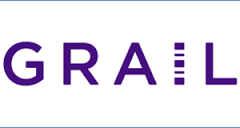A billion dollars sounds like a lot of money. But when your ambitions are as big as the cancer-detection startup Grail Bio’s are, it might not be enough.
As CEO and ex-Googler Jeff Huber puts it, Grail’s aim is to create “a test that will detect all of the major cancer types.” Already the recipient of $100 million in funding from DNA sequencing company Illumina and a series of tech luminaries, Grail believes that adding another zero to its cash balance will put its lofty goals within reach. The company announced Thursday that it plans to raise $1 billion, has “indications of interest” from investors, and would move quickly to secure the hefty cash infusion.
Whether Grail succeeds turns on the company’s ability to dramatically expand an emerging technology known as the liquid biopsy. It works by sequencing DNA from someone’s blood and looking for tell-tale fragments that indicate the presence of cancer. Dennis Lo, a doctor in Hong Kong, was among the first to show the technique’s promise. He’d previously used it to detect fetal DNA in a mother’s bloodstream. That led to a much safer form of screening for Down’s syndrome that is now in wide use.
Lo has experimented with liquid biopsy as a way to catch liver and nasopharyngeal cancers, with some encouraging results. But he urged caution in assuming the technique could be translated to all cancers.
Grail, which was spun out of Illumina about a year ago, has launched its first trials to see whether liquid biopsies can spot cancers earlier and more reliably than other screening tests.

Jeff Huber, CEO, Grail
For his part, Huber seems to understand that he’s got a mountain to climb. After losing his wife to colorectal cancer, Grail’s mission is deeply personal. He acknowledges that detecting cancer DNA may be difficult, because the disease mutates rapidly as it advances, and varies immensely from one type to another. He says his company will rely on sequencing the DNA of tens of thousands of subjects to build a library of cancer DNA that computers can then decipher.
Beyond the high-minded talk of turning the tide in the war against cancer, though, is a more cynical reading of the situation. As a unit within Illumina, Grail was an expensive, long-shot bet to create a new market for its gene sequencing machines. As a separate, now cash-rich company, Grail figures to become one of Illumina’s biggest customers. And venture capital will foot the bill, whether or not the experiment works.
(Read more: Forbes, “Blood Tests That Spot Cancer DNA Offer ‘Quantitative Peace of Mind’ for Survivors,” “10 Breakthrough Technologies: Liquid Biopsy,” “Spotting Cancer in a Vial of Blood”)
Source: MIT Technology Review

































